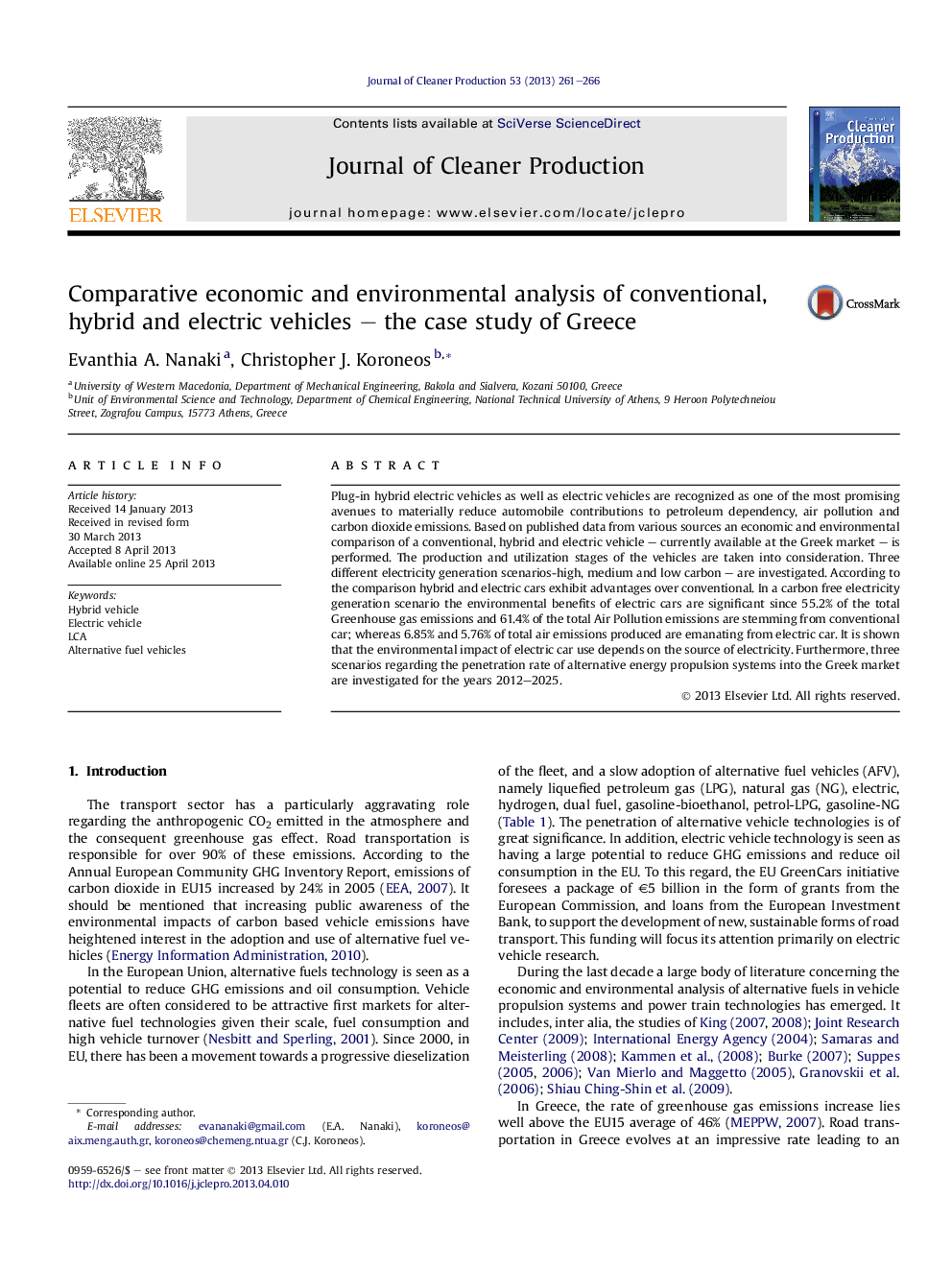| کد مقاله | کد نشریه | سال انتشار | مقاله انگلیسی | نسخه تمام متن |
|---|---|---|---|---|
| 1745161 | 1522193 | 2013 | 6 صفحه PDF | دانلود رایگان |

• Conventional, hybrid and electric vehicles are compared economically and environmentally.
• It was found that hybrid and electric vehicles have advantages over conventional.
• Hybrid and electric vehicles produce lower emissions than the conventional vehicle.
• CO2 emissions sequestration will be maximized if the well-to-wheel impact is clearly addressed at all stages of the fuel and energy chain.
• Renewable electricity increases the benefits of electrically chargeable vehicles.
Plug-in hybrid electric vehicles as well as electric vehicles are recognized as one of the most promising avenues to materially reduce automobile contributions to petroleum dependency, air pollution and carbon dioxide emissions. Based on published data from various sources an economic and environmental comparison of a conventional, hybrid and electric vehicle – currently available at the Greek market – is performed. The production and utilization stages of the vehicles are taken into consideration. Three different electricity generation scenarios-high, medium and low carbon – are investigated. According to the comparison hybrid and electric cars exhibit advantages over conventional. In a carbon free electricity generation scenario the environmental benefits of electric cars are significant since 55.2% of the total Greenhouse gas emissions and 61.4% of the total Air Pollution emissions are stemming from conventional car; whereas 6.85% and 5.76% of total air emissions produced are emanating from electric car. It is shown that the environmental impact of electric car use depends on the source of electricity. Furthermore, three scenarios regarding the penetration rate of alternative energy propulsion systems into the Greek market are investigated for the years 2012–2025.
Journal: Journal of Cleaner Production - Volume 53, 15 August 2013, Pages 261–266